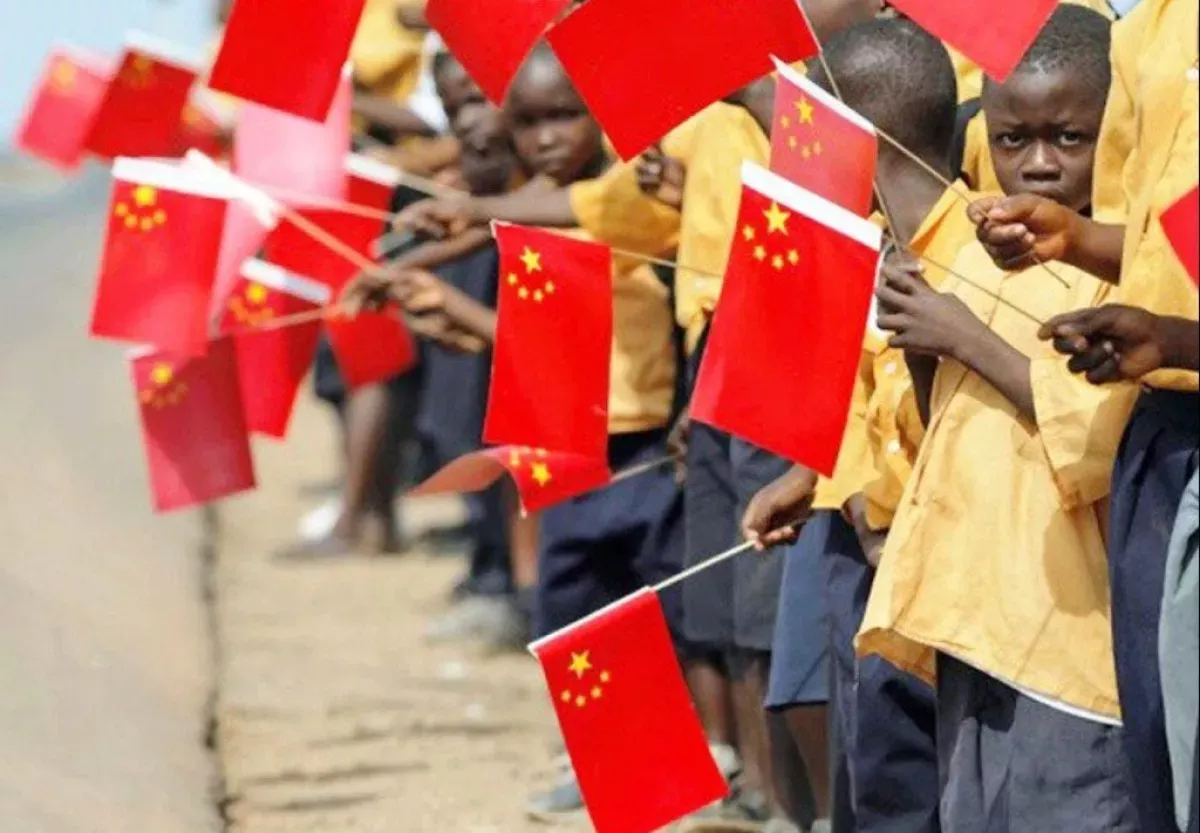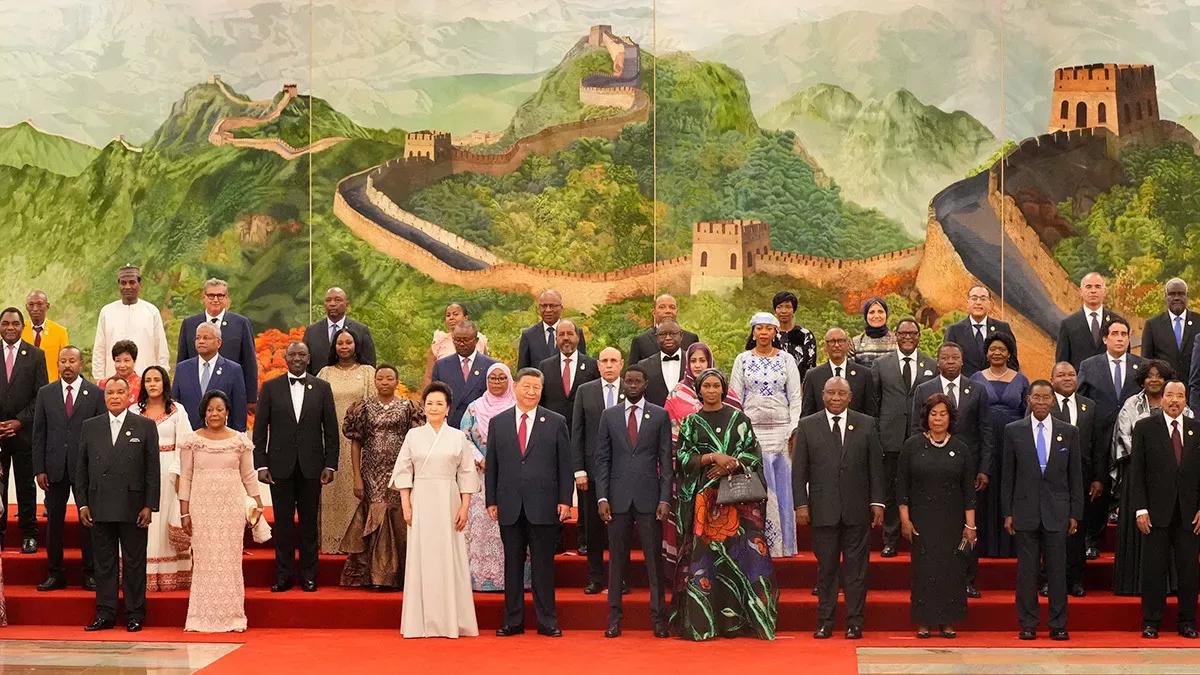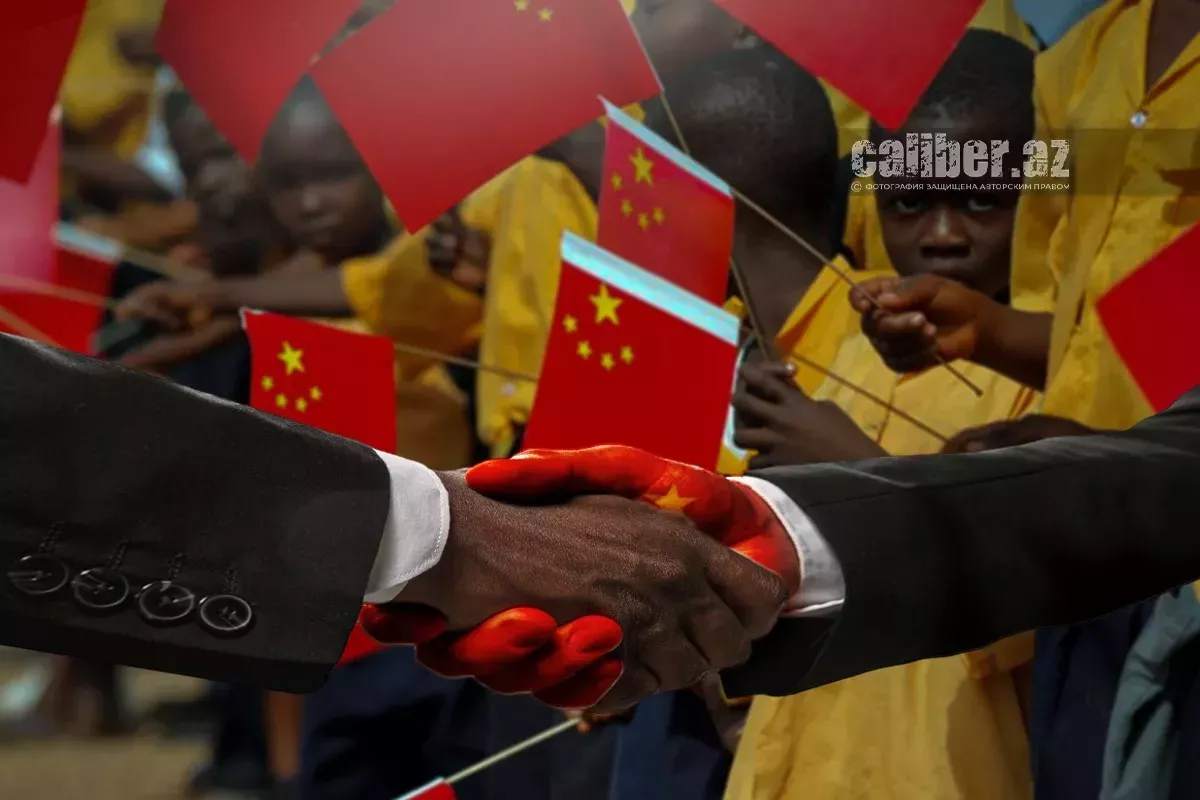Africa and China: a partnership shaping the global balance 70 years of friendship
Since the founding of the People’s Republic of China 76 years ago, Beijing’s relations with African countries have strengthened and developed significantly. A striking example of this is that for the past 35 years, Chinese foreign ministers have made their first diplomatic visit of the year to Africa.
The development of China–Africa relations can generally be divided into two stages. In the first stage, up until 1999, China established diplomatic relations with a large number of African countries, a process greatly influenced by the 29-country Asia–Africa Conference held in April 1955 in Bandung, Indonesia, where Premier Zhou Enlai met with African leaders for the first time. Following this forum, China intensified its contacts with the continent’s states, and on May 30, 1956, a joint communiqué was signed with Egypt establishing diplomatic relations.
During this period, China provided support to African countries in their struggles for independence and against Western colonialism and imperialism, despite facing certain financial difficulties of its own. Yet this stance allowed China to gain considerable prestige across the African continent.

The period after 1999 was marked by fundamental changes in the international landscape, and China and Africa entered a new stage of active economic development. Their relations became more mature and substantive.
Experts note that, first of all, the number of high-level visits increased. Leaders of the Chinese Communist Party, including Jiang Zemin, Li Peng, Zhu Rongji, Hu Jintao, and others, repeatedly visited African countries. As President Xi Jinping of China remarked, “The foundation and driving force of China–Africa relations is the people. Therefore, the development of our relations should be more people-oriented.” It is also worth noting that high-level Chinese visits place particular emphasis on the Belt and Road Initiative, aiming to encourage African countries to join it.
The importance of the Forum on China–Africa Cooperation (FOCAC) should also be highlighted, with its fourth summit held in Beijing last September. To illustrate FOCAC’s significance, Chinese Foreign Ministry spokesperson Mao Ning stated: “During the summit, China established or strengthened strategic partnerships with 30 countries. China’s relations with Africa as a whole were elevated to the level of a community with a shared future in the new era, with clearer positioning and rich connotations. Six proposals for jointly promoting modernisation were put forward, and a plan for the next stage of cooperation was formulated. The Beijing Declaration and the Beijing Action Plan for FOCAC 2025–2027 were also adopted. President Xi Jinping proposed a program of China–Africa partnership actions to jointly advance modernisation in ten areas over the next three years.”

Secondly, China and Africa continue to support each other on the international stage. African countries side with China and against the West on human rights issues, and the vast majority consistently adhere to the “One China” policy. In turn, China defends the interests of African states at the UN and other international organisations, supports their efforts to protect their lawful rights, draws the international community’s attention to Africa, and actively participates in peacekeeping activities on the continent.
Thirdly, China–Africa trade and economic relations have evolved from unilateral government aid to multilateral, mutually beneficial cooperation, including the establishment of joint ventures, project implementation, and collaboration in labour and management. China and African countries are also expanding cooperation in cultural, educational, medical, military, scientific, and technological fields, among others.
Additionally, since 1995, the Chinese government has provided African countries with concessional loans at state-subsidised interest rates to stimulate collaboration between Chinese and African enterprises within foreign aid projects involving shared participation.
By the end of 2024, Beijing had been Africa’s largest trading partner for 16 consecutive years, and in 2025, the pace of growth in bilateral trade continued to accelerate. According to data published by China’s General Administration of Customs, in the first five months of this year, China’s trade volume with African countries reached a record high of 963.21 billion yuan ($134.85 billion), representing a 12.4 per cent year-on-year increase.
On the ground, this appears as a comprehensive network of Chinese investments: roads and infrastructure, medical facilities, residential complexes, and an abundance of Chinese goods. In many African countries, Chinese consumer products are setting benchmarks for local brands. Chinese mobile phone brands under Transsion Holdings—Tecno, Infinix, and Itel—occupy half of the continent’s market. Affordable and adapted to African conditions (for example, with dual SIM capabilities, as users switch between different operators to access cheaper service packages), these phones demonstrate the Chinese market’s ability to meet regional needs. Phones from other countries, such as Samsung or iPhone, are mostly found only among wealthy Africans.
Over the past decade, China has also provided thousands of people in Sub-Saharan African countries with free satellite dishes. This is part of China’s “soft power,” as the broadcast packages generally include Chinese content dubbed in local languages.
China is also transforming African infrastructure, with its influence most visible in construction. In Khartoum, Sudan’s capital, the construction boom of the early 2000s attracted so many Chinese workers that a special residential complex was built on the city’s outskirts for them. A massive highway built in Nairobi by China Road and Bridge Corporation instantly transformed the Kenyan capital, reducing traffic congestion. China even built the headquarters of the African Union in Ethiopia. Observers note that African cities are gradually beginning to resemble Chinese megacities.
Chinese companies account for 8% of Africa’s total mineral production, yet this share is rapidly growing through acquisitions of copper mines in Zambia, cobalt deposits in the Democratic Republic of Congo, and lithium projects in Zimbabwe. At the same time, Africa is becoming increasingly important for China’s efforts to control global clean energy supply chains.

Chinese state-owned companies are involved in 78 African ports as financiers, developers, or operators, accounting for 33% of the continent’s port infrastructure. According to a report titled “Mapping China’s Strategic Port Development in Africa”, published on March 10, 2025, by the African Centre for Strategic Studies (ACSS), Chinese-supported port projects span 32 countries, with a strong concentration in West Africa (35 ports). In East Africa there are 17 such ports, in Southern Africa 15, and in North Africa 11. Some of the most significant China-backed initiatives on the African continent include the Tanzania–Zambia Railway (TAZARA), a new container terminal at Egypt’s El Dekheila Port, the Lekki deep-sea port in Nigeria, and a container terminal in Abu Qir, which hosts an Egyptian naval base.
Western observers note that China’s success in Africa can be explained by three strategic advantages: China makes decisions faster, implements projects more quickly, and does not interfere in the internal affairs of its African partners. Africans, in turn, often remark: “If you talk to the Chinese, you get a road; if you talk to Europeans, you get a lecture.”
Rwandan President Paul Kagame, in turn, stated that “China treats Africa as an equal partner” and added that these relations “are based both on mutual respect and mutual interests.”
In 2026, it will be 70 years since China established diplomatic relations with African countries, an occasion likely to be marked by a series of celebratory events, such as the “Year of China–Africa People-to-People Cooperation.” As President Xi Jinping emphasised at the Beijing summit of the Forum on China–Africa Cooperation, “China–Africa friendship transcends time and space, spans mountains and seas, and is passed down from generation to generation.”








